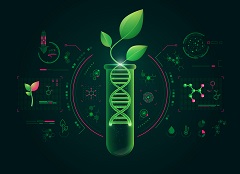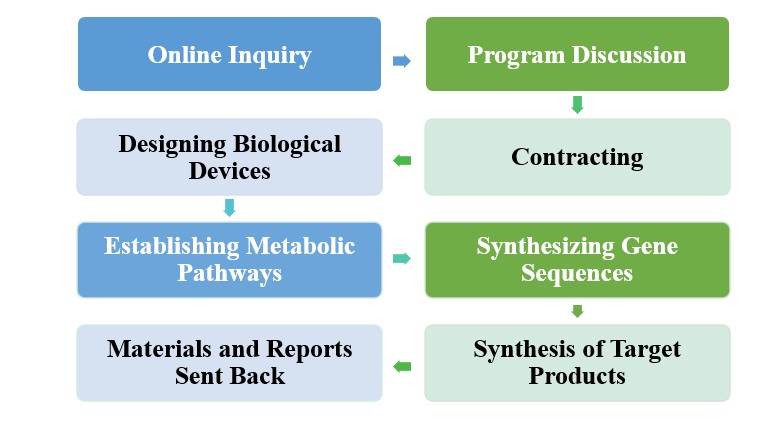Synthetic biology is an emerging field that combines multiple disciplines. After more than a decade of development, simple single-cell systems can no longer meet the market demand, and a transition to complex multi-cellular systems is needed. Plants possess abundant endosomal systems and organelles, highly specialized biosynthetic gene clusters, and fine metabolic regulatory networks, providing ideal model systems for conducting related research.

Lifeasible is a specialist biotechnology company with expertise in the field of plant synthetic biology. We can provide our customers with tailor-made synthetic biology solutions based on plant subcellular organelles using various biological tools and technologies.
With the rapid development of science and technology, we mainly provide customers with synthetic biology based on plant subcellular organelles, develop precise modified gene editing technology, establish efficient heterologous anabolic pathways, etc., which not only help human beings to deepen their understanding of complex life operating laws. It is also expected to provide new strategies for solving dilemmas and problems in agricultural production, biopharmaceuticals, energy, and environment, etc., and to achieve sustainable development.
DNA synthesis and assembly are critical technologies in the "build stage" of synthetic biology. We use PCR technology to synthesize known DNA sequences and de novo synthesis technology to synthesize unknown DNA sequences. Synthetic DNA is assembled in vitro by overlap-directed assembly, site-specific recombination, and restriction endonuclease-based strategies.
Gene editing is an essential tool for gene function analysis and crop improvement. Technologies that have been applied to plant gene editing include the CRISPR/Cas9 system and RNA interference (RNAi) technology.
The genetic transformation of plants is critical to the development of synthetic biology in plants as a whole. Commonly used methods include nuclear genome genetic transformation, transient transformation, and chloroplast genetic transformation.
Nuclear genome genetic transformation: there are mainly Agrobacterium-mediated methods, biolistic methods, pollen tube channel genetic transformation methods, microinjection methods, and nanoparticle transformation methods.
Chloroplast genetic transformation: generally, exogenous genes are introduced into the chloroplast genome by biolistic method, lipid exchange membrane permeation (LEEP) technology, or PEG-mediated transformation.
One of the keys to plant synthetic biology in the "design phase" is the selection of a suitable host organism, the "chassis." The types of chassis plants that have been developed include tobacco, rice, tomato, and other plants.
| Plant Specie | Applications |
|---|---|
| Nicotiana tabacum L. | For the production of most recombinant proteins such as drugs, vaccines, hormones, cytokines, growth regulators and natural products, etc. |
| Oryza sativa L. | It is used to produce nutraceuticals including medicinal proteins, oral vaccines, vitamins and flavonoids, and carotenoids. |
| Solanum lycopersicum L. | For the production of phenylpropane compounds, capsaicin, betaine, rosmarinic acid, retinol, vitamins, cholesterol, and keto carotenoids. |
| Arabidopsis thaliana | For producing natural products, testing environments, and synthesizing drug-related compounds. |
| Solanum tuberosum L. | For the production of betalains. |
| Zea mays L. | For the production of astaxanthin. |

Lifeasible offers the most suitable solutions for clients working in plant synthesis with a wide range of biological tools and technologies. We help our clients to synthesize various natural products, biomedical proteins, or energy sources using plant organelle metabolism. If you are interested, have questions, or would like to collaborate, please feel free to contact us.